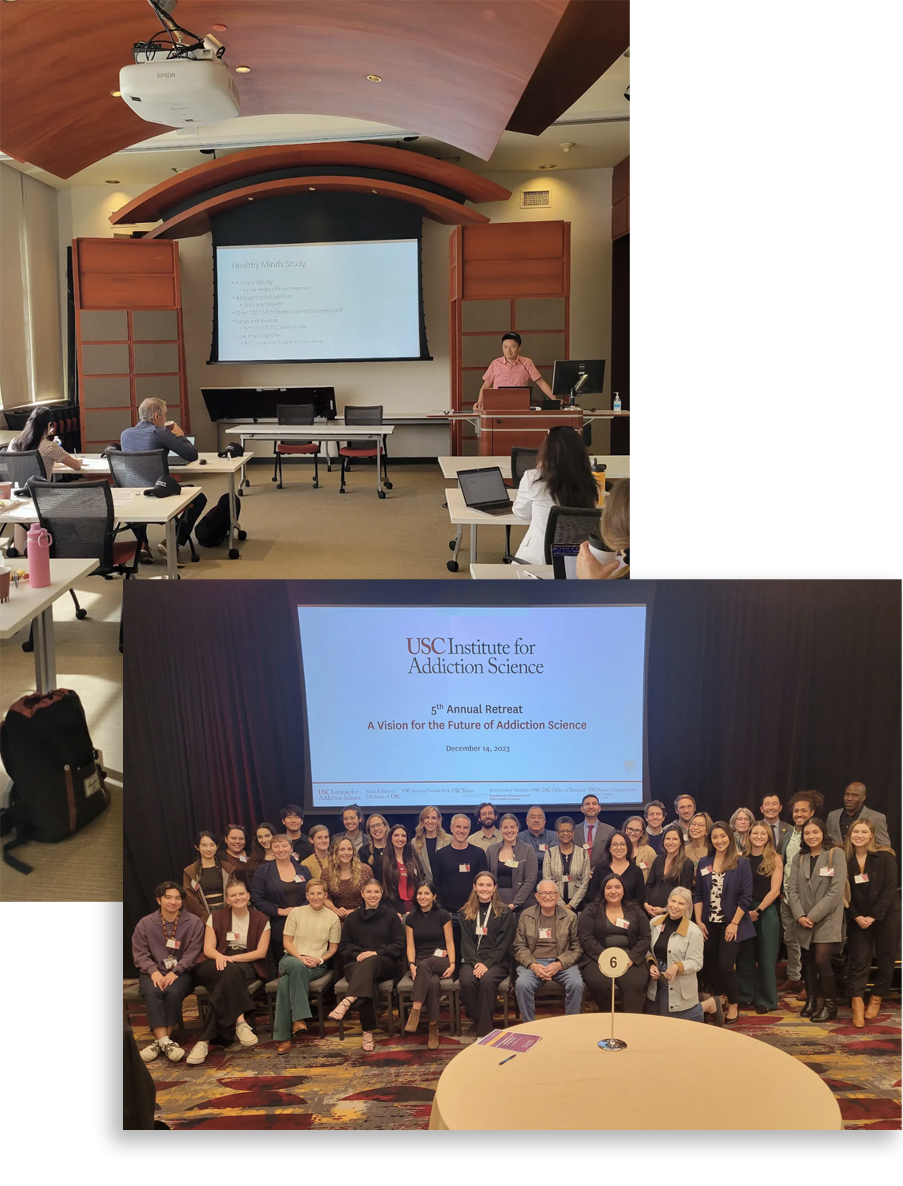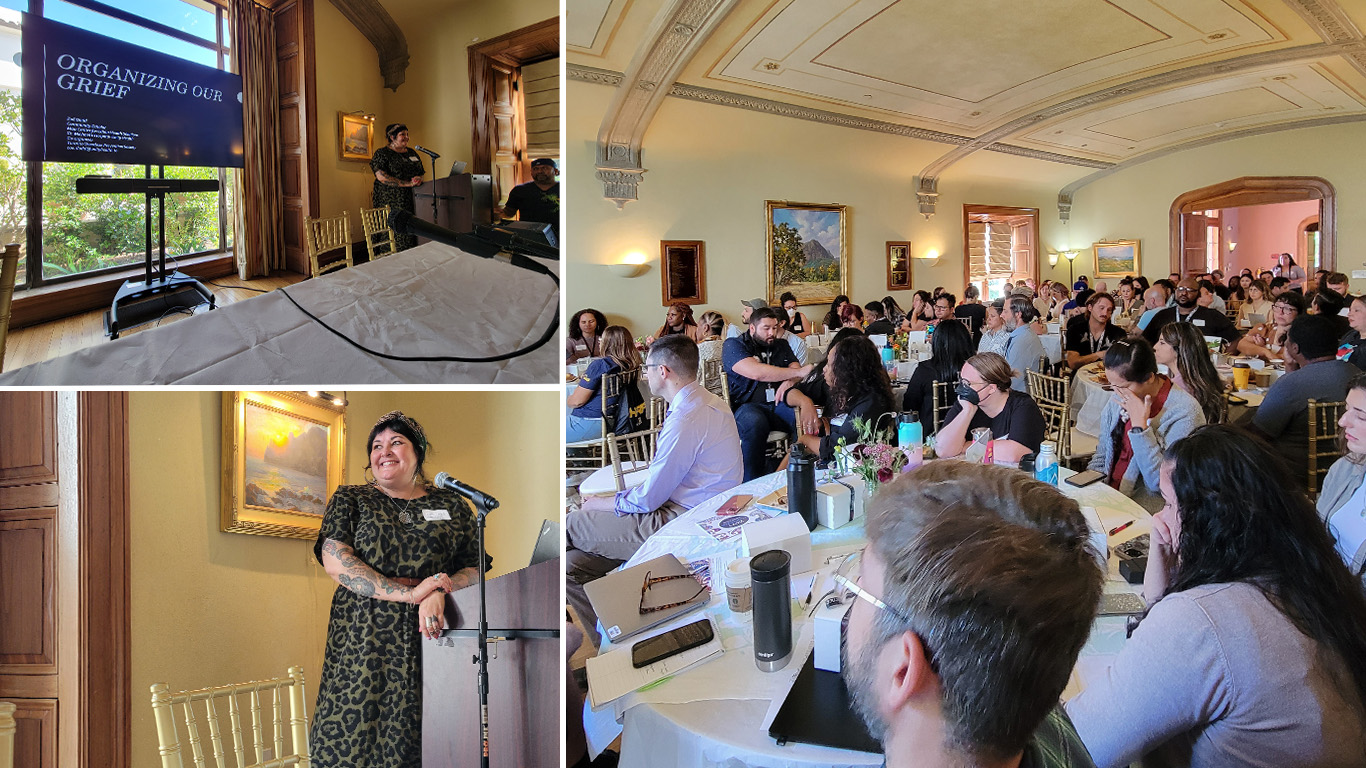Our Mission & Vision
USC Institute for Addiction Science (IAS) aims to strengthen the field of addiction science and improve the lives of those touched by addiction.
Vision
Mission


USC IAS
by the
numbers:
80
Faculty
Members
80
Faculty
Members
10
Different
Schools
$25M
Addiction Related Research Grants
166
Addiction Related Articles Published in 2023
19
Federal and International Policies
Changed
Transdisciplinary addiction science. It’s what we do.
We aim to break down silos that have historically prevented scholars and practitioners from different disciplines from working together.
We’ve developed a programmatic agenda and strategic plan, established an organizational structure, and made important initial achievements in transdisciplinary addiction science, training and education, and community engagement.
Transdisciplinary Science
IAS cultivates new addiction science collaborations that cross disciplines and produce innovative, high-impact, and adaptable scientific evidence that can be readily disseminated to practitioners, policy makers, and the general public.
Training & Education
We are proud to develop novel addiction science training and education programs for members of the USC community, the residents of Southern California, and the general public.
Dissemination & Community Service
The Institute for Addiction Science engages with, learns from, and serves the community by disseminating evidence-based knowledge to increase awareness, correct misperceptions, counteract stigma, and inform policy.
